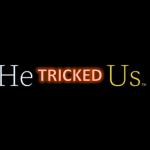The Riverside Church has a long history going back to its founding of being a prophetic voice on critical issues of our day (from WWII to Civil Rights, Apartheid in South Africa to LGBT inclusion). We believe that the church is called to do justice and defend the vulnerable. But with so much that needs our attention in the world, it is easy for churches to get pulled in many different directions and for ministries to become siloed from one another. At Riverside, we’ve recently started conversations on how all the different areas of our church – from budget and finance to worship, social justice to education – can work together on collaborative efforts to address the challenges we face.
I recently had the opportunity to have a public discussion called #TrendingAtTRC with Beth Ackerman, Head of Riverside’s creation care ministry Beloved Earth, and Lisa Hinds Salmon, Chair of our Finance Committee, to talk about the ways their work intersects. And we know these discussions are not limited to just our church. As Earth Day approaches, we wanted to continue the conversation by exploring a series of questions on this blog together in the hopes that they could be useful to others as well.
This will be a series of 3 posts where each of us answer questions about how different areas of a church community can collaborate together on environmental and financial justice. The first question we explore is on divestment from fossil fuels and how our financial commitments can be a tool for change.
Question: What exactly are we talking about when we say ‘divestment?’ What is the goal(s) and are we making a real difference? If divestment is removing our funds from something, where should they go instead?
Pastor Amy
I am neither an environmental expert nor a finance executive, but I do work quite a bit with language. And I know first-hand the power of language to make positive impact. I’ve also seen language used in terribly destructive ways.
Because of that, I’m very happy to see this question under discussion. When we’re not clear about what we’re talking about—especially in emotionally charged and potentially controversial conversations—those on both sides of the conversation often slip into using language as a weapon: accusatory, vague references to some shadow terror that only raises fear instead of leading us toward helpful and collaborative solutions. This creates enemies, not friends; combatants, not collaborators. Needless to say, nothing constructive comes out of that kind of conversation.
I understand the word “divestment” to be used in a variety of ways, across a spectrum of investment positions, but I’m not interested in token expressions of justice-making just for the sake of looking progressive. I have seen organizations trumpet divestment with investment strategies far less socially responsible than ours here at The Riverside Church. So I am wondering: what’s a tangible position for us that:
- reflects our social justice investment initiatives,
- is a clear and shared understanding of what divestment means to us,
- carefully stewards the investments for which we’re responsible, with a full understanding of the need we have to create income with these assets,
- is not mere tokenism—that is, whatever action we take has real and substantive impact on the injustice we want to address?
This is what I so deeply appreciate about Lisa and Beth: they understand the incredible importance of collaboration, and the role that language and conversation plays in that collaboration. Let’s get clear about what’s already happening in our investment strategy, what divestment really means to us, and how we can move forward together toward a shared expression of justice-making in every part of our life together.
Beth
The world is looking down the barrel of climate injustice and chaos. Our gas and oil powered lifestyles here in the United States has fueled economic growth for about 200 years. But scientists are now in agreement that burning fossil fuels is changing our climate, causing extreme weather like Hurricane Sandy. It’s not just weather we’re talking about when we talk about climate change, but extreme disruption to life on the planet.
Is it possible to turn this around? Public opinion does matter. If enough people in their churches and other organizations create a stir, saying “not on our watch”, the momentum can shift. We have got to get the world’s attention about leaving fossil fuels in the ground and one way is by eliminating all of those stocks from our portfolios. After all, if it’s wrong to wreck the planet, it’s wrong to profit from that wreckage.
Divestment, the selling off of our oil, gas and coal stocks, is a powerful way to leverage our moral authority. Not selling the stocks recklessly, but over as much as a 5-year time frame. Not to bankrupt the oil and gas industry, but to change awareness on a global level. Yes, global movements do work, as we’ve seen time after time, and Riverside can play a significant role as a social justice leader. The Beloved Earth Community urges you to take a look at our booklet about divestment for more about this: http://www.trcnyc.org/socialjustice/files/DivestmentFinalCombined2-18-16.pdf
Lisa
Divestment in a vacuum is not the silver bullet that the traditional principals of behavioral finance would have us believe. The Finance Committee wouldn’t dare put new wine into old wineskins! Merely excluding an oil company from our portfolio doesn’t nearly go far enough at addressing the environmental ills caused by the worst offenders in the energy sector. Rather, we believe the pace of progress is accelerated through a proactive and disciplined plan of reinvestment in a wide array of renewable and transitional energy sources. Capital innovation creates a powerful force for social change. The Riverside Church has played an instrumental role in inspiring the use of these innovative tools.
















